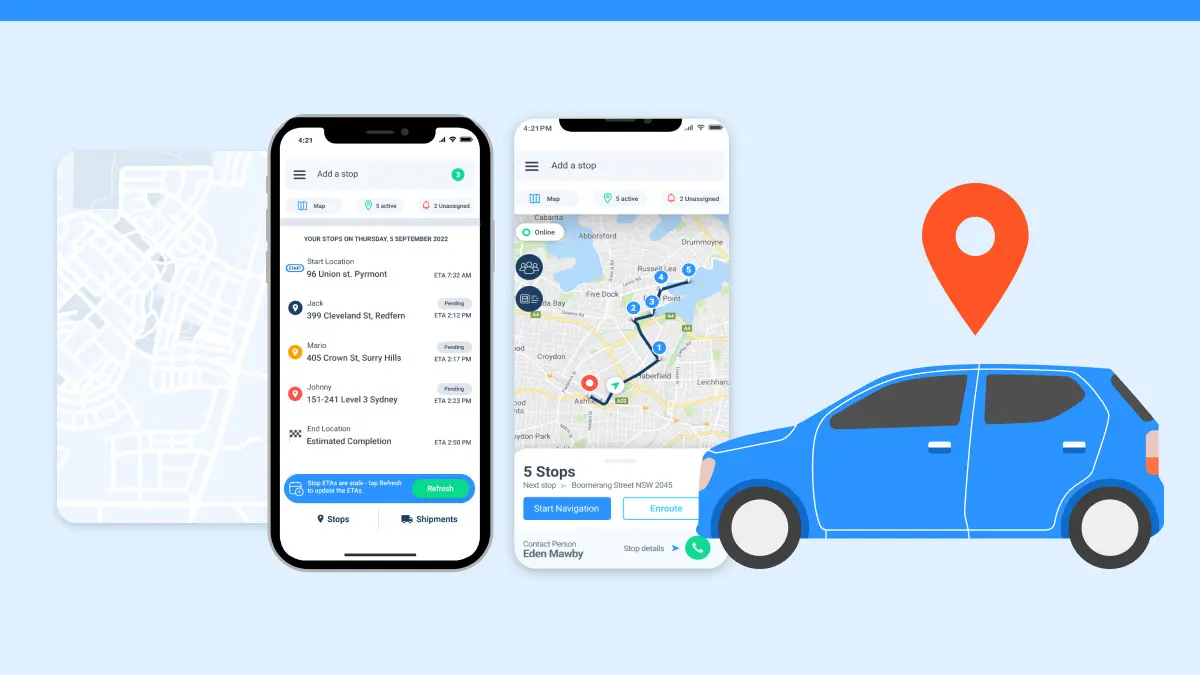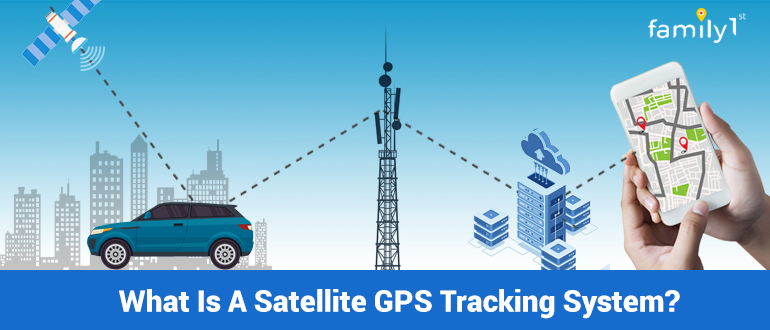Just How GPS Tracking Improves Car Safety and Monitoring
Just How GPS Tracking Improves Car Safety and Monitoring
Blog Article
Taking Full Advantage Of Effectiveness With GPS Tracking: Approaches for Fleet Management and Asset Surveillance
In the realm of fleet administration and property tracking, the application of general practitioner monitoring systems has become a cornerstone for improving operational performance and efficiency. By utilizing the power of real-time data, businesses can improve their logistics, maximize routes, and enhance overall fleet performance. Nonetheless, the real possible lies not only in the execution of these modern technologies however also in the critical usage of the insights they offer. From improving driver safety and security to making educated choices based upon extensive information analytics, the possibilities are vast. As we discover the various approaches and strategies to make best use of performance with general practitioner tracking, a world of possibilities opens to redefine exactly how organizations handle their fleets and check their possessions.
Carrying Out Real-Time Monitoring Solutions
To take full advantage of functional effectiveness, firms can carry out real-time tracking systems that supply prompt area data for their properties. By utilizing GPS technology, services can obtain real-time understandings into the whereabouts of their vehicles, devices, and various other valuable sources. This level of visibility allows firms to improve operations, improve efficiency, and boost general efficiency.
Real-time tracking systems supply various advantages for firms throughout different markets. With the capacity to keep an eye on possessions continuously, organizations can optimize directing, timetable maintenance better, and minimize the danger of theft or loss. In addition, these systems enable businesses to respond without delay to any type of unanticipated occasions or interruptions, guaranteeing minimal downtime and maximum performance.
Applying real-time tracking systems needs mindful planning and consideration of specific business needs. Business should pick the ideal modern technology provider, tailor the system to fulfill their demands, and give adequate training to employees. By spending in real-time tracking services, companies can remain ahead of the competitors, provide remarkable customer solution, and attain lasting growth in today's busy market atmosphere.
Enhancing Route Preparation and Organizing

One key technique for enhancing path preparation is to use historical data and real-time information to determine one of the most reliable courses for lorries. By evaluating past courses and thinking about aspects such as traffic patterns and shipment home windows, businesses can develop schedules that minimize unnecessary stops and hold-ups. Additionally, carrying out vibrant transmitting abilities enables adjustments to be made in real-time based upon altering problems, making sure that motorists constantly take the most effective course to their destination.
Enhancing Chauffeur Efficiency and Safety
Enhancing motorist efficiency and safety and security is paramount in ensuring the safe and secure and smooth operation of a fleet. By utilizing GPS monitoring technology, fleet managers can keep track of driver actions in real-time and offer immediate feedback to promote secure driving techniques. This includes tracking speed limitations, extreme stopping, acceleration patterns, and adherence to web traffic policies.
Moreover, general practitioner radar can aid in identifying drivers that might need extra training or support to boost their efficiency (gps tracking). By analyzing information on driving patterns and practices, fleet supervisors can apply targeted training programs to deal with certain areas of enhancement. This positive approach not only enhances overall driver performance yet also contributes to a safer job environment for every person included
Along with efficiency tracking, general practitioner radar can additionally boost motorist safety by offering emergency situation help features. In case additional resources of a crash or malfunction, drivers can rapidly send call for help, enabling fleet managers to react quickly and send off aid when needed. Generally, integrating GPS tracking modern technology into fleet monitoring strategies is crucial for optimizing driver efficiency and making sure the security of both properties and vehicle drivers.

Using Geofencing for Enhanced Safety
Maximizing fleet protection exceeds monitoring chauffeur efficiency and safety; one efficient approach is via the strategic use of geofencing modern technology. Geofencing allows fleet managers to establish online borders or geozones around specific locations, allowing them to obtain real-time notifies when lorries enter or exit these assigned locations. By establishing up geofences around high-risk places such as building and construction sites, unapproved locations, and even customer locations, fleet managers can boost safety and security procedures and alleviate possible risks.
Geofencing not just boosts security but likewise makes it possible for fast feedback times in instance of unapproved lorry use or burglary. In the event of a breach, signals can be sent to fleet managers, allowing them to take instant activity to find and recoup the lorry. In addition, geofencing can assist in keeping an eye on lorry motion throughout off-hours, ensuring that automobiles are not being made use of for unauthorized functions.
Incorporating GPS Data for Strategic Decision-Making
Utilizing GPS data combination is essential for informed tactical decision-making in fleet monitoring operations. By incorporating GPS information right into fleet management systems, services can gain important understandings right into their operations, bring about more effective routes, enhanced motorist habits, and far better overall performance. Through the combination of GPS data, fleet supervisors can track automobile places in real-time, screen gas intake, and assess chauffeur performance metrics such as rate, idling time, and harsh braking.
Additionally, incorporating GPS data permits the optimization of courses based upon traffic problems, weather condition patterns, and other exterior factors, assisting to lower delivery times and operational costs. By assessing historic GPS information, fleet managers can identify patterns, patterns, and locations for enhancement, allowing them to make data-driven decisions that enhance productivity and simplify operations.
Final Thought
To conclude, the application of general practitioner radar can greatly enhance effectiveness in fleet administration and resource asset tracking. By utilizing real-time monitoring, enhancing path preparation, boosting chauffeur performance, making use of geofencing for safety, and incorporating GPS information for calculated decision-making, organizations can accomplish and enhance procedures cost savings (gps tracking). These techniques allow businesses to improve processes, increase efficiency, and eventually make the most of the general effectiveness of their operations
In the realm of fleet administration and possession surveillance, the utilization of General practitioner tracking systems has come to be a keystone for improving functional performance and efficiency. As we discover the numerous methods and methods to make best use of efficiency with GPS monitoring, a world of possibilities opens up to redefine exactly how organizations manage their fleets and check their possessions.
By using GPS monitoring modern technology, fleet managers can keep track of motorist behavior in real-time and provide prompt feedback to promote secure driving techniques. With the assimilation of this contact form GPS data, fleet managers can track automobile areas in real-time, monitor fuel intake, and examine vehicle driver efficiency metrics such as speed, idling time, and harsh braking.
In verdict, the implementation of General practitioner monitoring systems can substantially boost effectiveness in fleet management and possession tracking.
Report this page